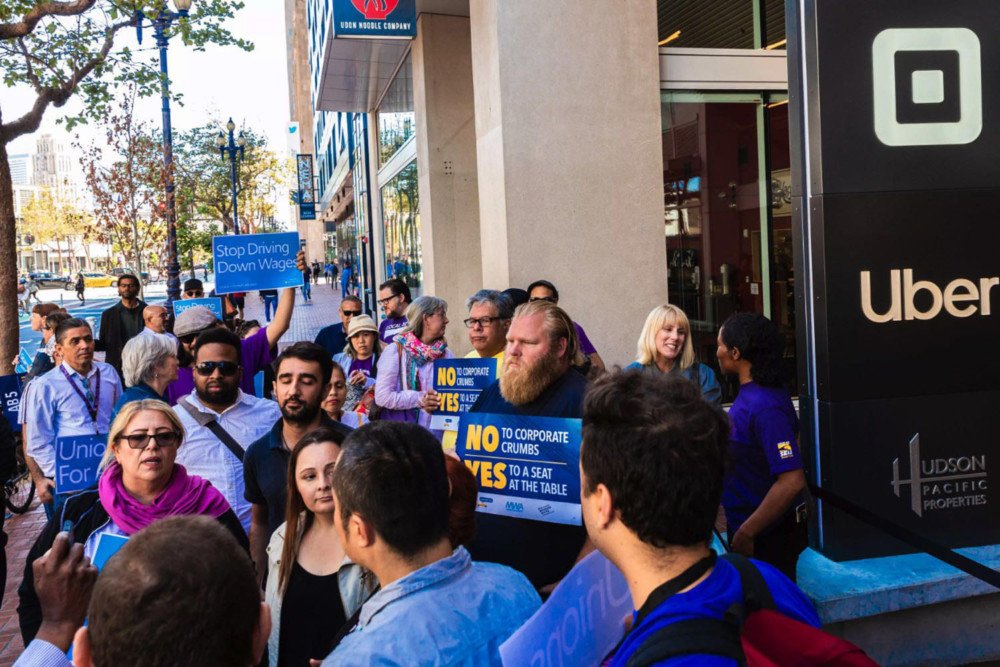By Sean Szymkowski
Roadshow
WWR Article Summary (tl;dr) The newly passed bill will require companies like Uber and Doordash to make contracted workers employees. The move will force the businesses to adhere to minimum wage laws and provide basic benefits like unemployment insurance.
Roadshow
California will become the first state to mandate that app-based companies like Lyft and Uber must treat contracted workers as employees, not freelancers. The landmark passage could utterly transform how Lyft, Uber and so many other companies operate in the state.
The New York Times detailed the bill’s passage, which passed the state Senate by a vote of 29-11 earlier this month.
California Gov. Gavin Newsom also previously endorsed the bill.
At its core, Assembly Bill 5 will require companies to put workers on the payroll if the company controls how he or she performs a task, or if the work is part of a company’s standard business. Effectively, Lyft, Uber, Doordash and so many other contracted workers will become employees under the law, and that will require said companies to adhere to minimum wage laws and provide basic benefits like unemployment insurance.
The ride-sharing giants warned that the law could upend their operations.
“Today, our state’s political leadership missed an important opportunity to support the overwhelming majority of rideshare drivers who want a thoughtful solution that balances flexibility with an earnings standard and benefits,” said a Lyft representative. “The fact that there were more than 50 industries carved out of AB5 is very telling. We are fully prepared to take this issue to the voters of California to preserve the freedom and access drivers and riders want and need.”
Uber could not be reached for immediate comment.
According to the Times, reclassifying contracted drivers as employees could cost companies 20 percent to 30 percent more, and drivers will likely lose the flexibility of logging on for the job whenever he or she wants. However, experts pointed out that the bill does not require setting shifts, and drivers are legally entitled to continue to make their own schedules. Cities will also have the ability to sue companies that do not follow the new laws.
The reverberations could give way to a whole new era of how ride-sharing companies operate, such as a limit to how many drivers are available during slow hours. And not all drivers were thrilled about losing their contractor status over fears it would hurt flexibility. Ride-share companies met with the California government and proposed a solution to guarantee a minimum wage and the right to organize, but labor groups did not accept the compromise.
The fight is hardly over. Lyft, Uber and many other companies have pledged millions of dollars to put AB5 on the ballot for a referendum and exempt their organizations from the new law. Uber will also reportedly lobby lawmakers to create a new worker classification to better suit its industry. As it stands, contractors will become regular employees beginning Jan. 1, 2020.
___
(c) 2019 CBS Interactive Inc., a CBS Company. All rights reserved.
Roadshow and the Roadshow logo are registered trademarks of CBS Interactive Inc. Used by permission.
Visit the Roadshow at Roadshow.com
Distributed by Tribune Content Agency, LLC.
Distributed by Tribune Content Agency, LLC.
_____
TO SUBSCRIBE TO NEWS2USE
This column/content is for subscribers only. It is sold separately and is not included in your Tribune News Service subscription. To subscribe, please contact Rick DeChantal at Tribune Content Agency, (866) 280-5210 or rdechantal@tribpub.com, or you can purchase individual columns a la carte at www.tribunenewsservice.com.














































































































































































































































































































































































